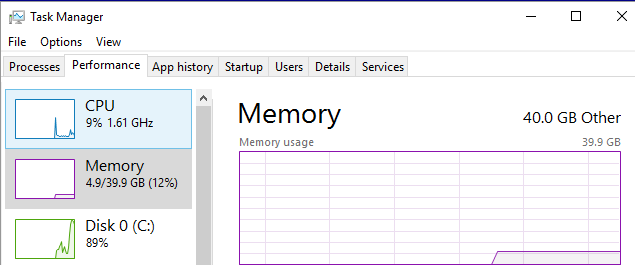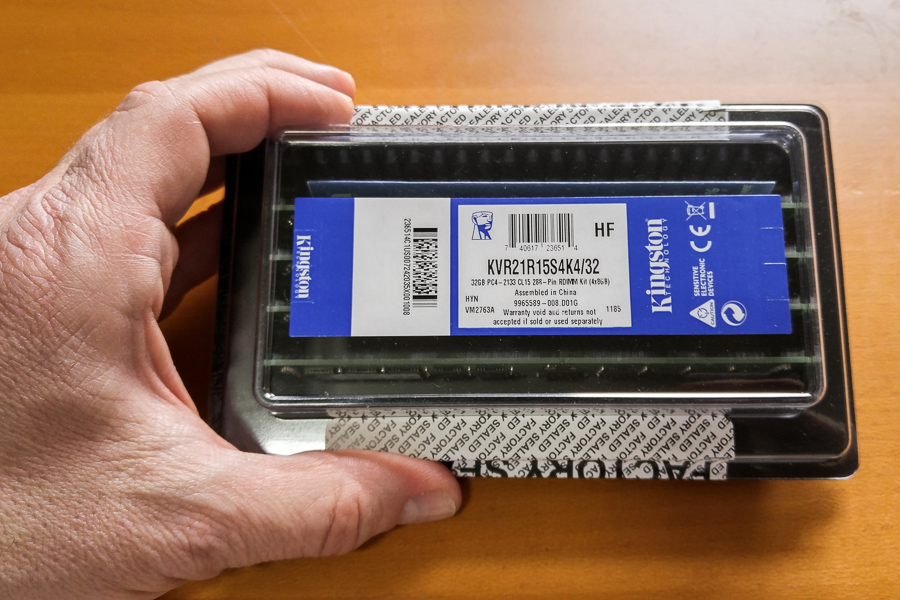Startup founder Tim Romeo decided to kill his startup right before they would have gotten a check for $500,000. Sounds crazy? No; he did the right thing:
[S]omething was wrong. It seemed trivial at first, but it bothered me. Despite glowing praise, our users were only using ContractBeast to create a small percentage of their total new contracts.
I spent the next two weeks visiting our beta users, looking over their shoulders as they worked, and listening to them explain how they planned on using the product. Pressing them directly on why they were not using ContractBeast to create all their contracts resulted in a lot of feature requests.
Now, talking with customers about features is tricky. Often you receive solid and useful ideas. Occasionally a customer will provide an insight that will change the way you look at your product. But most of the time, customers don’t really want the the features they are asking for. At least not very badly.
When users are unhappy but can’t explain exactly why, they often express that dissatisfaction as a series of tangential, trivial feature requests. ... These aren’t necessarily bad ideas, but they had nothing to do with why they were not using ContractBeast more extensively.
His blog post is good advice not just for startup founders, but for anyone writing software.
Senior Microsoft programmer Raymond Chen describes a feature in Windows 10 that is unusually useful:
Windows 10 brings the Xbox Game DVR feature to the PC. The Game DVR feature lets you record yourself playing a video game, so you can share the recording with your friends.
Suppose you have some program that you want to record, say for a bug report or for an instructional video. Just pretend it's a game:
- Put focus on the program you want to record.
- Press Win+G to open the Game Bar. If it asks whether you want to open the Game Bar, say, "Yes, this is a game."
- Press the red circle to start recording, or press Win+Alt+R.
- Do the thing you want to record.
- Open the Game Bar and press the red square to stop recording. Or use the hotkey Win+Alt+R.
- Optional: Open the Game Bar, click the gear icon, and uncheck "Remember this app as a game."
The recording is placed in your Videos\Captures folder.
Cool, right?
Scott Hanselman suggests that, rather than dividing the world into technologists and non-techies, the division is simply about curiosity:
I took apart my toaster, my remote control, and a clock-radio telephone before I was 10. Didn't you? What's the difference between the people that take toasters apart and the folks that just want toast? At what point do kids or young adults stop asking "how does it work?"
There's a great interview question I love to give. "When you type foo.com into a browser, what happens? Then what happens? Then what happens?" I ask this question not because I care how deep you can go; I ask because I care how deep you care to go. Where does your interest stop? How do you THINK it works? Where does technology end and where does the magic (for you) begin? HTTP? TCP? DNS? Voltage on a wire? Registers in chips? Quantum effects?
Perhaps curiosity is an innate thing, perhaps it's taught and encouraged, but more likely it's a little of both. I hope that you're stretching yourself and others to ask more questions and explore the how and why of the world around you.
And he has a great quote on Twitter (from himself): "Non-technical people, here's a secret. We tech folks have no idea what the problem is. We just try to narrow it down, removing variables."
Apparently Comcast has upgraded my Internet service:

Yeah, I can live with that.
Breaking from more than 60 years of tradition, on May 11th the National Weather Service will stop using ALL CAPS in its forecasts:
The National Weather Service has proposed to use mixed-case letters several times since the 1990s, when widespread use of the Internet and email made teletype obsolete. In fact, in web speak, use of capital letters became synonymous with angry shouting. However, it took the next 20 years or so for users of Weather Service products to phase out the last of the old equipment that would only recognize teletype.
Recent software upgrades to the computer system that forecasters use to produce weather predictions, called AWIPS 2offsite link (The Advanced Weather Interactive Processing System), are allowing for the change to mixed-case letters. The switch will happen on May 11, after the required 30-day notification period to give customers adequate time to prepare for the change.
Yes, we only have about two weeks left to prepare for this MOMENTOUS CHANGE. I can scarcely believe it myself...
Because no one has actually cleaned up a database of IP address geocodes, a Kansas farmer is getting blamed for all manner of bad behavior on the Internet:
As any geography nerd knows, the precise center of the United States is in northern Kansas, near the Nebraska border. Technically, the latitudinal and longitudinal coordinates of the center spot are 39°50′N 98°35′W. In digital maps, that number is an ugly one: 39.8333333,-98.585522. So back in 2002, when MaxMind was first choosing the default point on its digital map for the center of the U.S., it decided to clean up the measurements and go with a simpler, nearby latitude and longitude: 38°N 97°W or 38.0000,-97.0000.
As a result, for the last 14 years, every time MaxMind’s database has been queried about the location of an IP address in the United States it can’t identify, it has spit out the default location of a spot two hours away from the geographic center of the country. This happens a lot: 5,000 companies rely on MaxMind’s IP mapping information, and in all, there are now over 600 million IP addresses associated with that default coordinate. If any of those IP addresses are used by a scammer, or a computer thief, or a suicidal person contacting a help line, MaxMind’s database places them at the same spot: 38.0000,-97.0000.
Which happens to be in the front yard of Joyce Taylor’s house.
And, of course, since most people don't understand (a) default data, (b) data errors, or (c) how anything at all actually works, default IP mapping by MaxMind and other companies (including Google and Facebook) has resulted in people behaving stupidly all over the U.S.
Pro tip: Never live near a major data center.
Via Chicagoist, astronaut Tim Kopra snapped this from aboard the International Space Station earlier this week:

The city's borders show up brilliantly because unlike most of the surrounding suburbs, Chicago uses sodium-vapor lamps, which glow yellow-orange. But that's changing (including right in my own alley):
The Chicago Infrastructure Trust will replace the city's 348,500 outdoor lights with energy-efficient LED technology, according to a statement from City Hall. The Smart Lighting Project is aimed at making the city's lighting more environmentally-friendly and save money.
The LED lights would be significantly more efficient than the current sodium-vapor lights and would produce the same amount of light while using a fraction of the electricity, according to TimeOut Chicago. However, the new lights will produce a white light instead of the famous orange glow.
I have say, the LEDs are much more pleasant than the old lights, and they use just a fraction of the energy. But someday the city's outline won't be as visible from above.
The new computer has arrived, and I am now setting it up.
This used to be a total pain in the ass. Copy files, install from disks, copy more files, find passwords... And by "used to" I mean in 2012.
Today my working files are all in OneDrive, my frequently-used, unimportant Web passwords* are in Chrome, and my apps are all in the cloud. This pretty much means the only things I have to do are (a) log into my Microsoft account, (b) download Chrome, and (c) copy a portable hard disk onto my local. So much less babysitting.
And then there's this:

I mean, 40 GB. I feel like the first time I used a computer with 32 MB of RAM. I haven't even taken it out for a spin yet; that's after I install Lightroom, Visual Studio, and SQL Server.
Speaking of, I do have to install my development environment and make sure I can compile and deploy the important things. But I don't have to do that this second.
This little box here contains 32 gigabytes of RAM, and cost me $1 per 162,842,362 bytes. As I mentioned Thursday, this is considerably more RAM for considerably less money than the RAM I bought in January 1993 to upgrade my 4 MB ZEOS computer to an 8 MB computer. Those 4 megabytes cost about the same as these 32 gigabytes in total. But back then, I got only 20,972 bytes per dollar.

Put it another way: this RAM is approximately 8,000 times less expensive than the RAM I bought in 1993. It's also somewhere around 2,000 times faster, but that's a different metric. Oh, and it's more than 1,600 times more memory capacity than the total hard drive space on the first computer I owned that came with a hard drive.
I love living in the future.
Reddit recently published their 2015 Transparency Report, in which they tell how many times they received official requests for user information. However, NSA letters often require that the companies receiving them keep the letters themselves secret. So how to let the world know you've received one? Kill a canary:
At the bottom of its 2014 transparency report, the company wrote: "As of January 29, 2015, reddit has never received a National Security Letter, an order under the Foreign Intelligence Surveillance Act, or any other classified request for user information. If we ever receive such a request, we would seek to let the public know it existed."
That language was conspicuously missing from the 2015 transparency report that was published Thursday morning.
Warrant canaries work like this: a company publishes anotice saying that a warrant has not been served as of a particular date. Should that notice be taken down, users are to surmise that the company has indeed been served with one. The theory is that while a court can compel someone to not speak (a gag order), it cannot compel someone to lie. The only problem is that warrant canaries have yet to be fully tested in court.
When users wondered if this meant the site had been subjected to a secret court order in the /announcements/ subreddit, CEO Steve Huffman, known on the site as "spez," wrote: "I've been advised not to say anything one way or the other."
Secret warrants are totalitarian instruments that have no place in an open democracy. We need to end the practice. I hope someone with the balls and bucks challenges one soon.